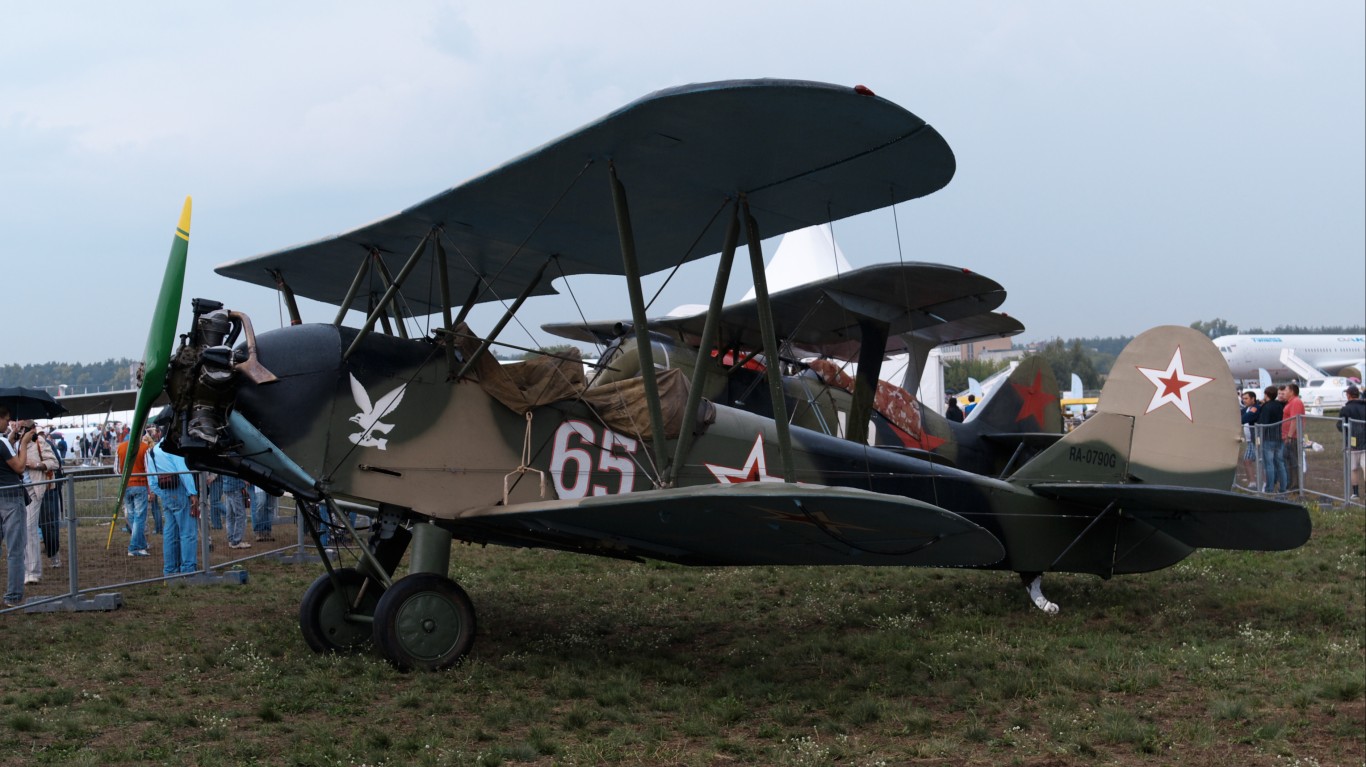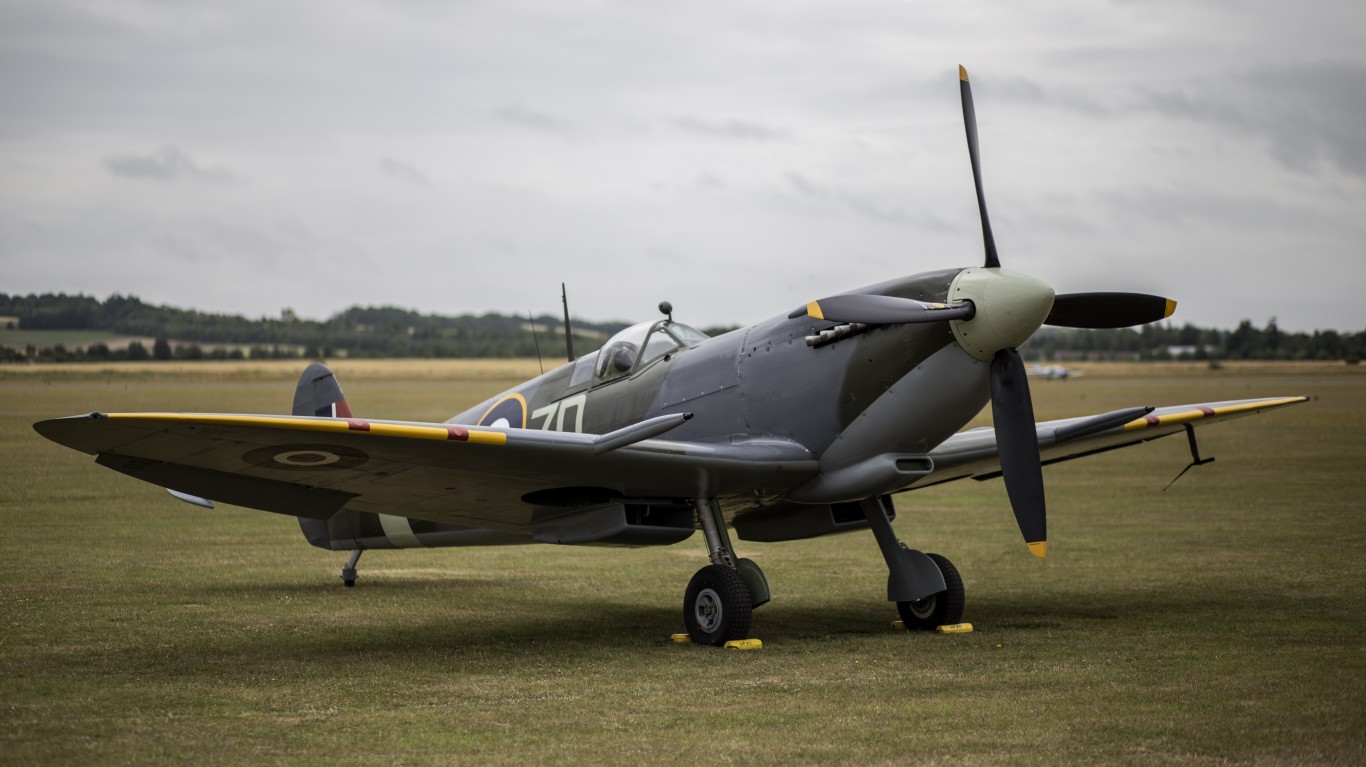
Dominance of the skies has played a crucial role in all military conflicts since World War II. The biggest air force is not always the best, but there is a distinct advantage to outnumbering an enemy. This advantage is greatly increased when a military is capable of producing more aircraft on a consistent basis. Here, we are looking at some of the most produced military planes of all time and the roles these aircraft played throughout the years. (Also see, the U.S. has the largest air force in the world.)
To determine the most produced military planes of all time, 24/7 Wall St. reviewed all-time aircraft production totals from Military Factory, an online database of military vehicles, aircraft, arms, and more. Military planes that had more than 12,000 units produced are ranked by their production runs. Supplemental information about the country of origin, year entered service, crew size, maximum speed, roles, and when the military plane was notably used also came from Military Factory.
It is worth noting that a majority of the military planes on this list were produced for use in WWII. While planes were involved in fighting in World War I, technology improved considerably by WWII, and countries relied heavily on aircraft for bombing raids, surveillance, transport and more and both sides had to produce aircraft by the hundreds. The aircraft on this list have played pivotal roles in conflicts over the years and contributed to the evolution of aerial combat and continue to inspire new generations of military aircraft.
Take the Ilyushin IL-2 Shturmovik, one of the Soviet Union’s most widely-produced aircraft. With over 36,000 units manufactured during WWII, the IL-2 was also known as the “Flying Tank” thanks to the combination of armor protection, performance, and firepower. As a central component of the Soviet air force, its role was pivotal during the Eastern Front combat, providing air support and ground assault capabilities, according to Military Factory.
On the American side, the Consolidated B-24 Liberator is high up on the list with over 18,000 units produced during World War II. The B-24’s roles included anti-submarine warfare, and reconnaissance and surveillance.
One of the most iconic military aircraft of World War II, and most widely produced, was the North American P-51 Mustang. Over 15,000 units were manufactured, a testament to the aircraft’s impact in aerial combat, according to Military Factory. The P-51 was initially used as a long-range escort for bombers, but later became fighter-bomber. The aircraft remains legendary to this day.
The newest generations of aircraft have nowhere near the production numbers of some older planes, but it can be argued that these new aircraft are so advanced that fewer planes have an outsized impact. (See these warplanes fly faster than the speed of sound.)
Here is a look at the most widely produced military planes of all time:
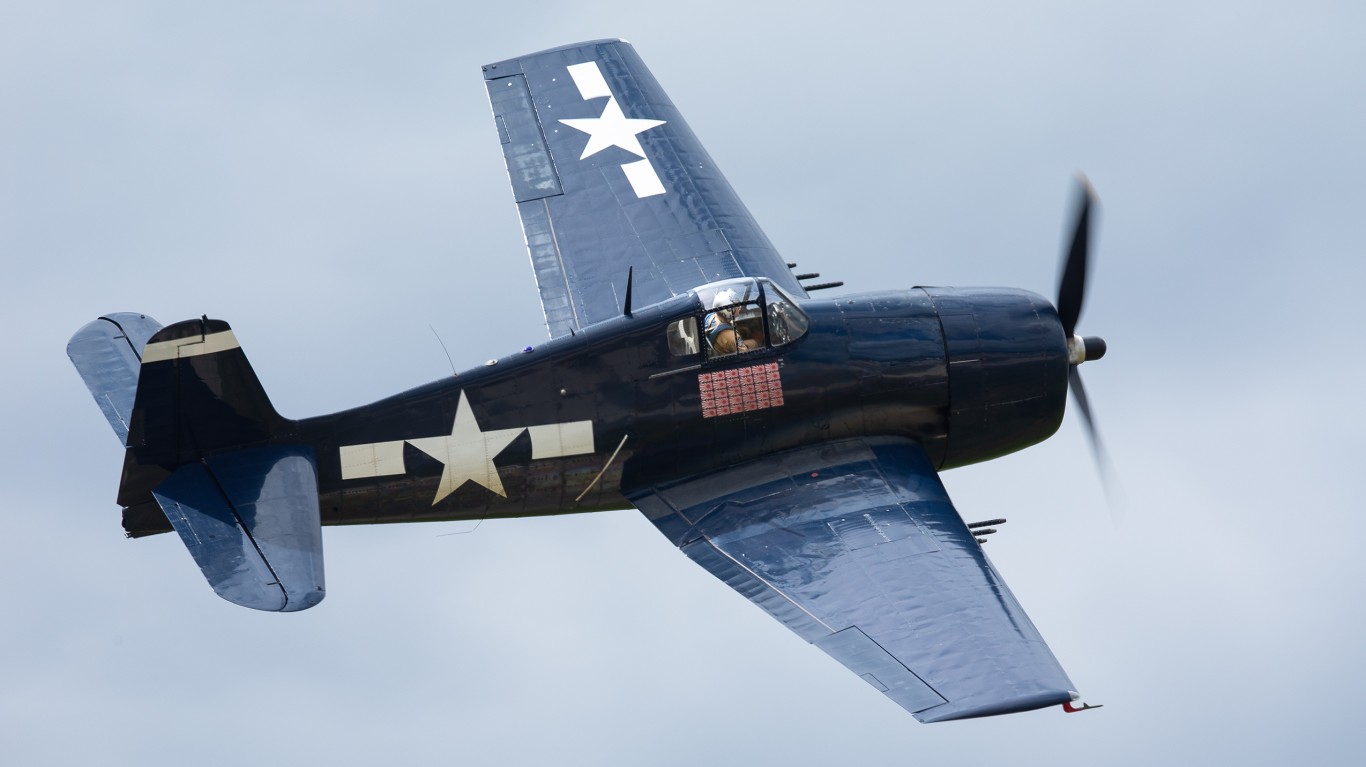
26. Grumman F6F Hellcat
> Number produced: 12,272
> Country of origin: United States
> Year entered service: 1943
> Notably used doing: World War II
> Crew size: 1
> Max speed: 380 mph
> Roles: Air-to-air combat fighter, interception, ground attack (bombing, strafing), close-air support, Maritime / Navy
[in-text-ad]
25. Vought F4U Corsair
> Number produced: 12,571
> Country of origin: United States
> Year entered service: 1942
> Notably used doing: World War II
> Crew size: 1
> Max speed: 446 mph
> Roles: Air-to-air combat fighter, interception, ground attack (bombing, strafing), close-air support, Maritime / Navy, intelligence-surveillance-reconnaissance
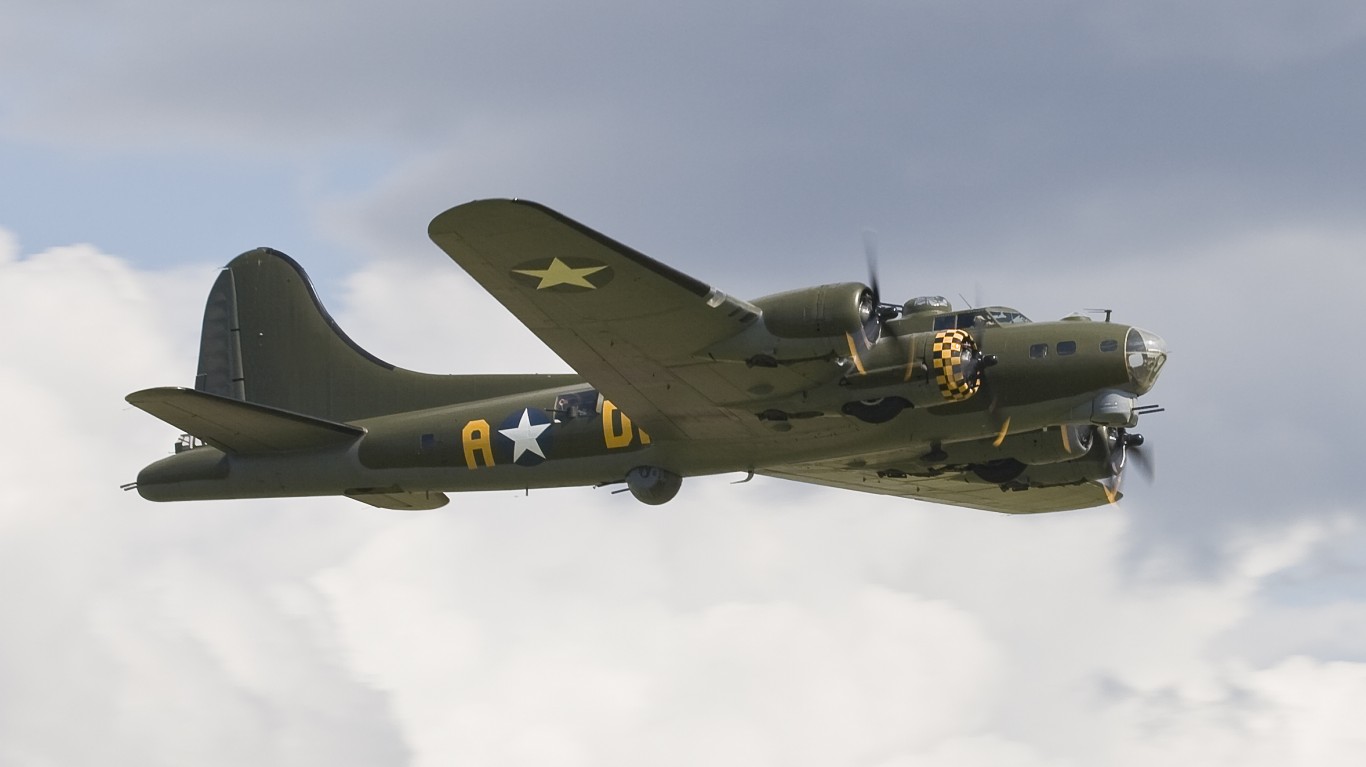
24. Boeing B-17 Flying Fortress
> Number produced: 12,731
> Country of origin: United States
> Year entered service: 1937
> Notably used doing: World War II
> Crew size: 10
> Max speed: 287 mph
> Roles: Ground attack (bombing, strafing), close-air support, airborne early warning, anti-ship, electronic warfare, search & rescue, transport, commercial aviation, VIP service, intelligence-surveillance-reconnaissance, training
23. Douglas C-47 (Skytrain / Dakota)
> Number produced: 12,748
> Country of origin: United States
> Year entered service: 1942
> Notably used doing: World War II
> Crew size: 3
> Max speed: 230 mph
> Roles: Ground attack (bombing, strafing), close-air support, MEDEVAC, transport, VIP service
[in-text-ad-2]
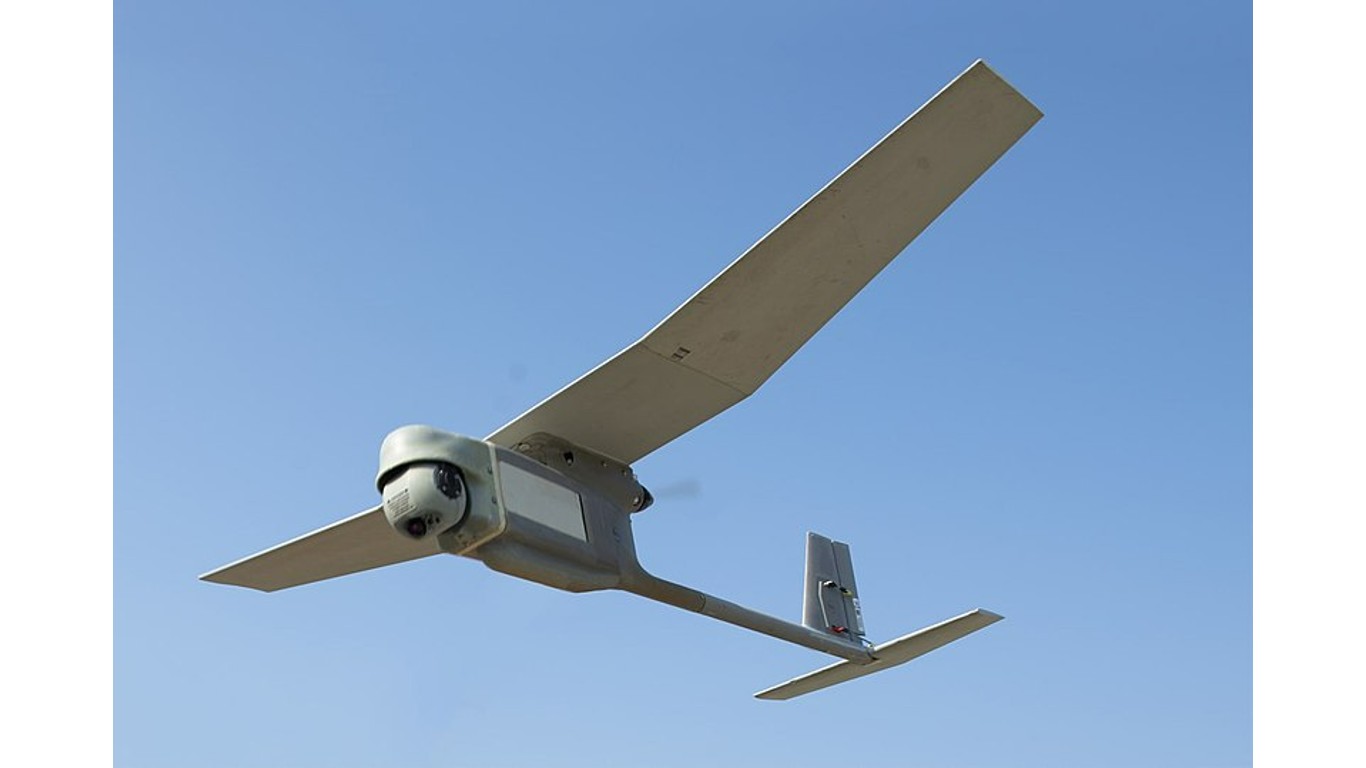
22. AeroVironment RQ-11 Raven
> Number produced: 13,000
> Country of origin: United States
> Year entered service: 2003
> Notably used doing: War in Afghanistan
> Crew size: 0
> Max speed: 35 mph
> Roles: Intelligence-surveillance-reconnaissance, special forces, unmanned capability
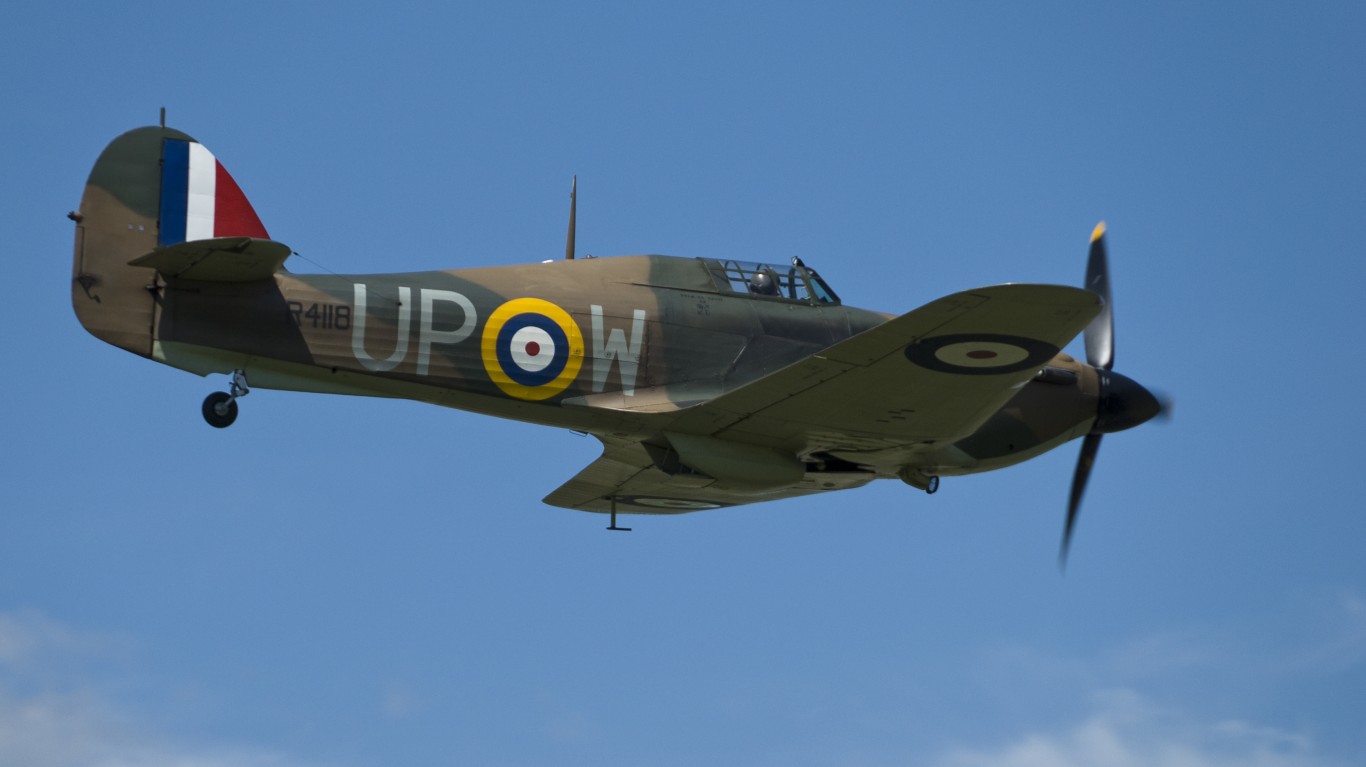
21. Hawker Hurricane
> Number produced: 14,583
> Country of origin: United Kingdom
> Year entered service: 1937
> Notably used doing: World War II
> Crew size: 1
> Max speed: 318 mph
> Roles: Air-to-air combat fighter
[in-text-ad]
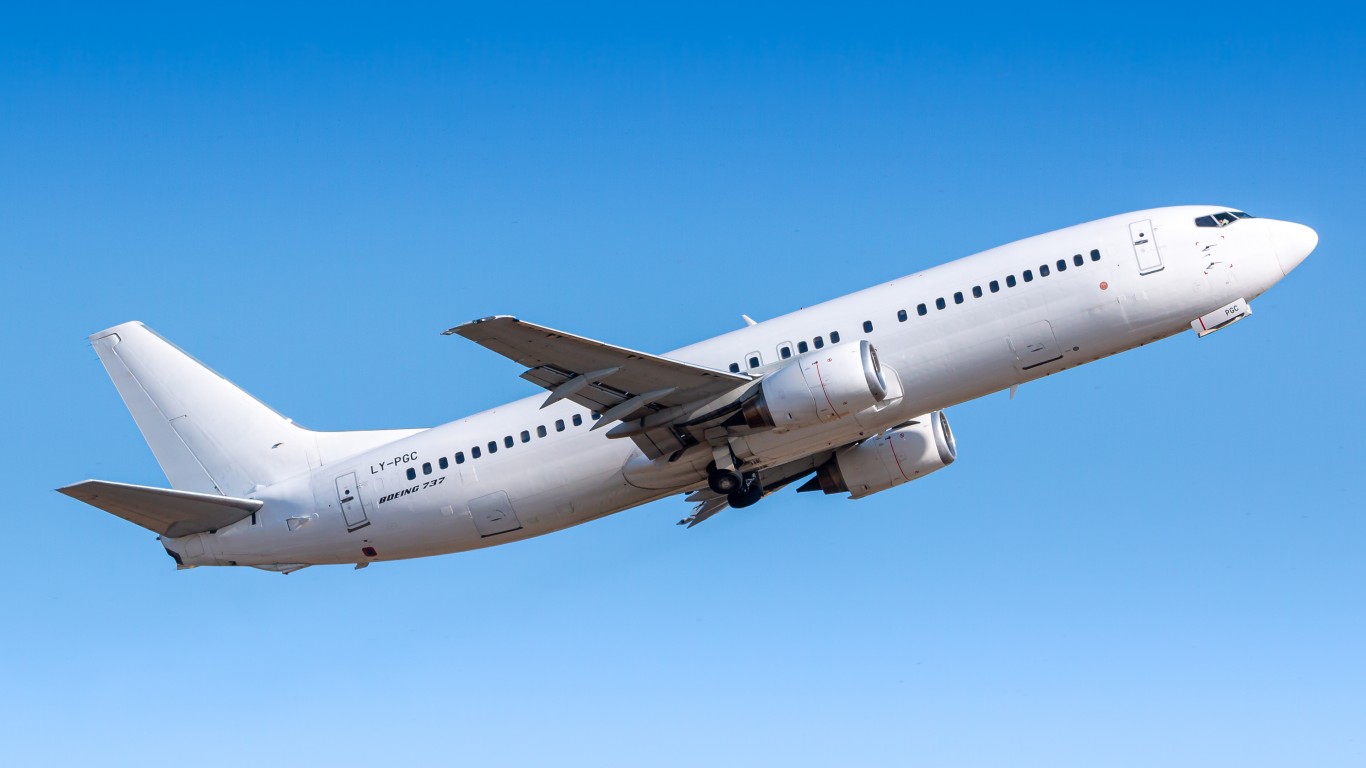
20. Boeing 737
> Number produced: 14,725
> Country of origin: United States
> Year entered service: 1968
> Notably used doing: Global War on Terrorism
> Crew size: 2
> Max speed: 544 mph
> Roles: Military transport, commercial aviation
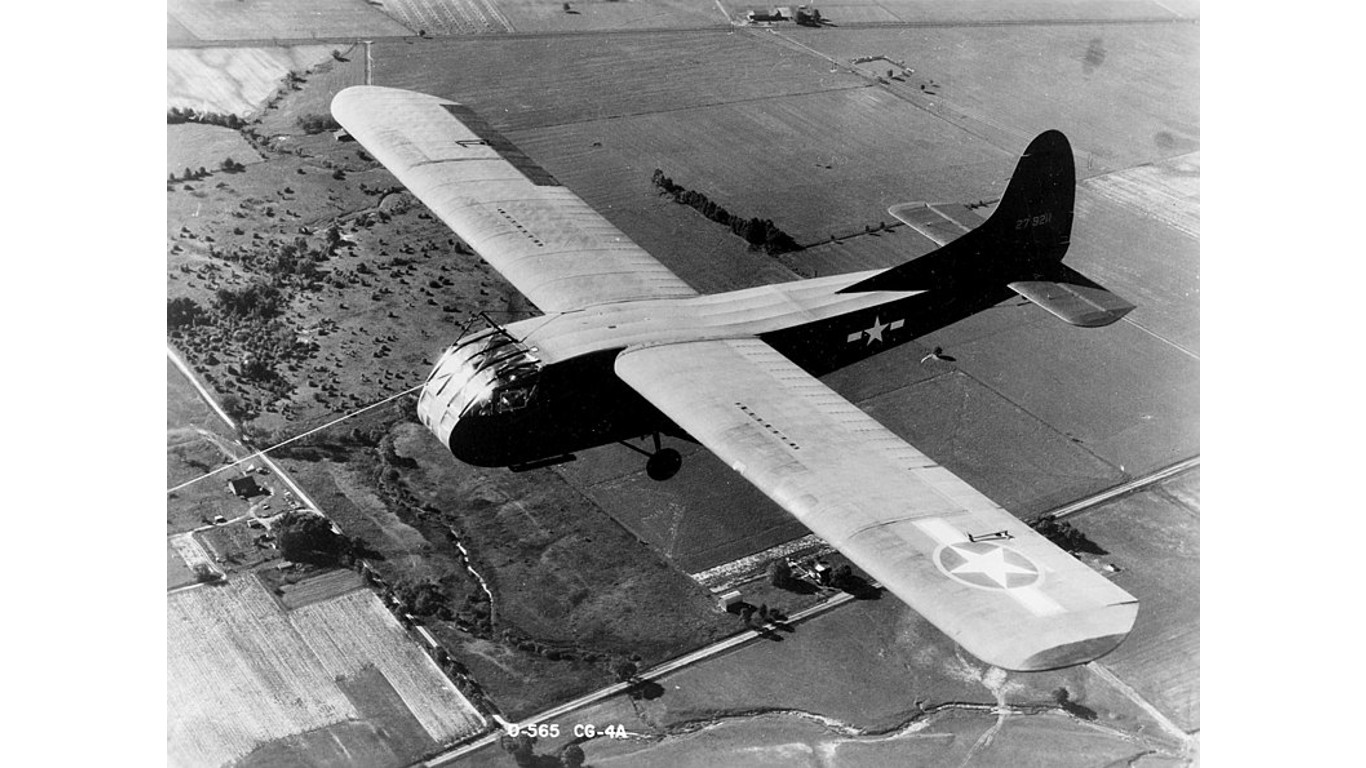
19. WACO Hadrian (CG-4)
> Number produced: 14,972
> Country of origin: United States
> Year entered service: 1942
> Notably used doing: World War II
> Crew size: 2
> Max speed: 149 mph
> Roles: Military transport
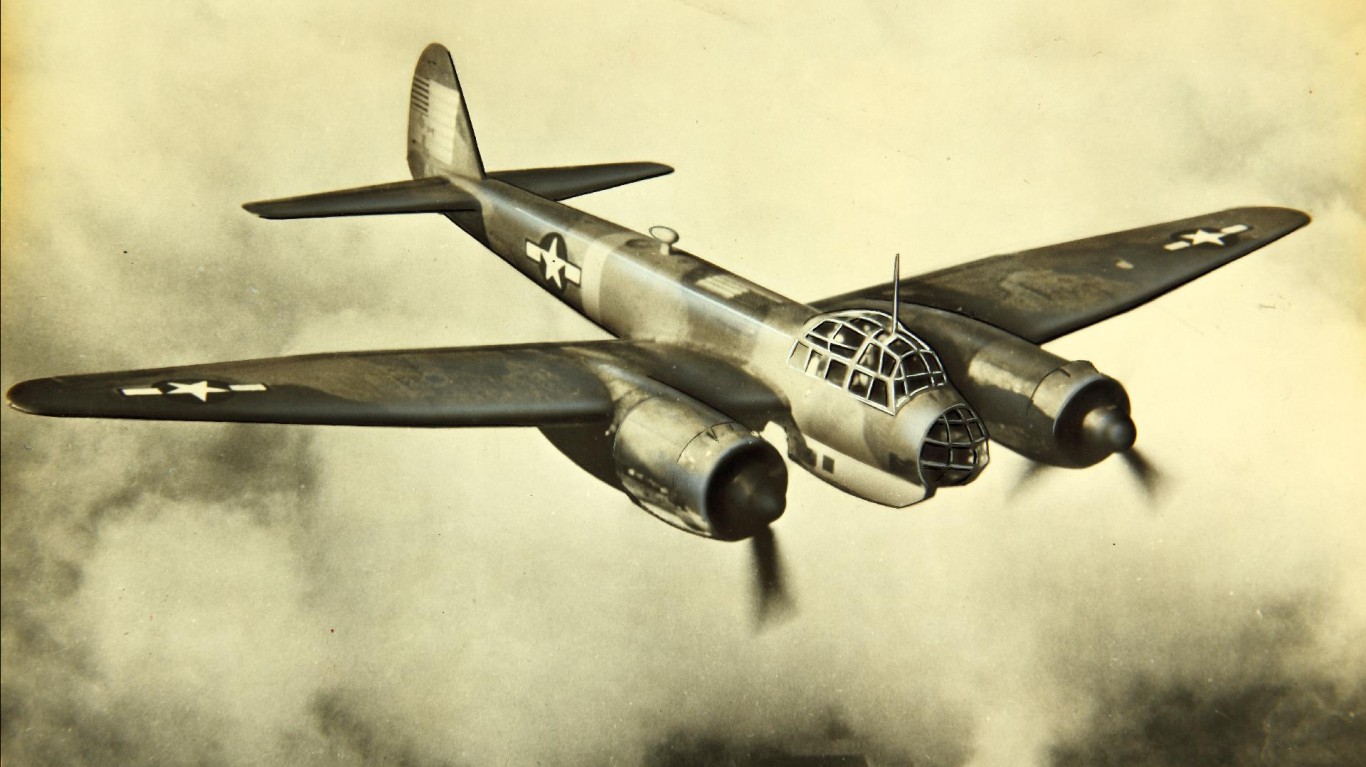
18. Junkers Ju 88
> Number produced: 15,183
> Country of origin: Nazi Germany
> Year entered service: 1939
> Notably used doing: World War II
> Crew size: 4
> Max speed: 317 mph
> Roles: Air-to-air support, ground attack (bombing, strafing), close-air support, anti-ship, intelligence-surveillance-reconnaissance
[in-text-ad-2]
17. North American T-6 Texan
> Number produced: 15,495
> Country of origin: United States
> Year entered service: 1936
> Notably used doing: World War II
> Crew size: 2
> Max speed: 209 mph
> Roles: Close-air support, training
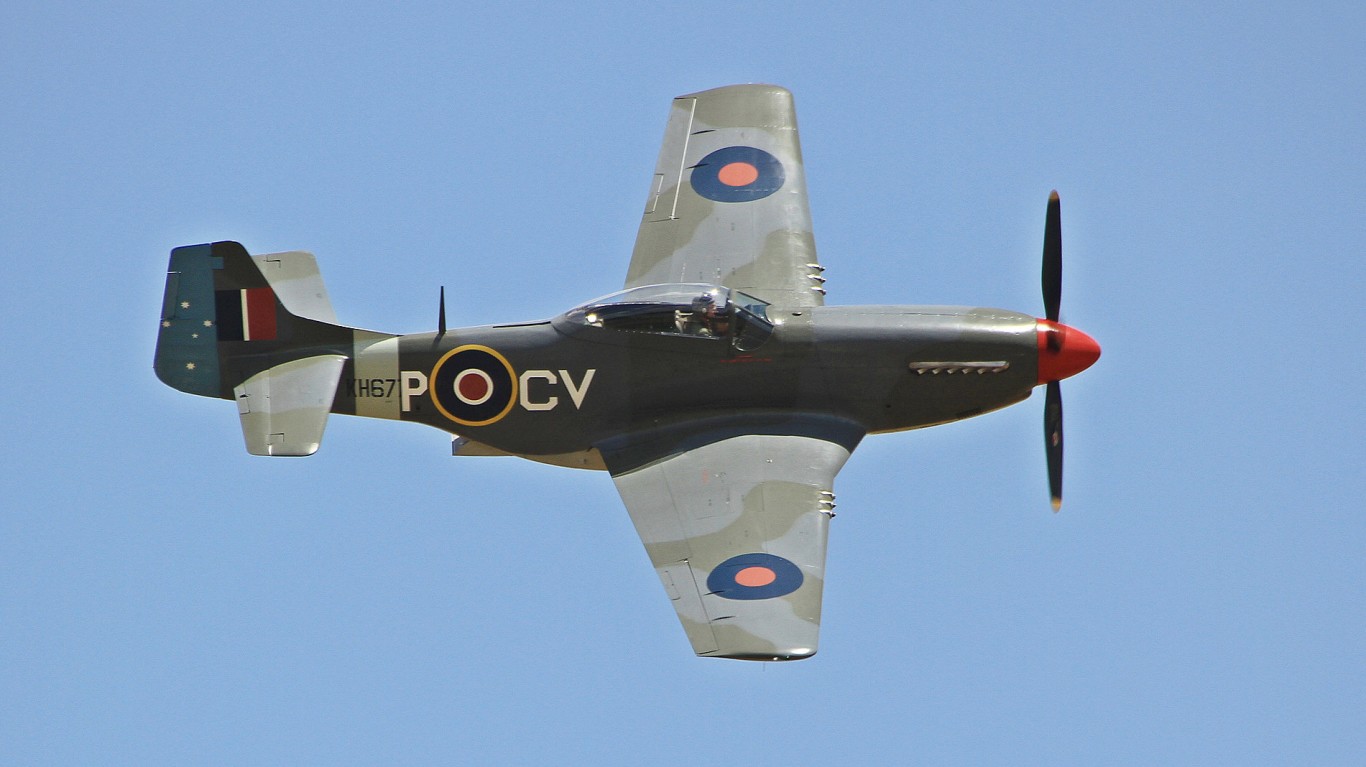
16. North American P-51 Mustang
> Number produced: 15,586
> Country of origin: United States
> Year entered service: 1942
> Notably used doing: World War II
> Crew size: 1
> Max speed: 437 mph
> Roles: Air-to-air combat fighter, interception, close-air support, intelligence-surveillance-reconnaissance, training
[in-text-ad]
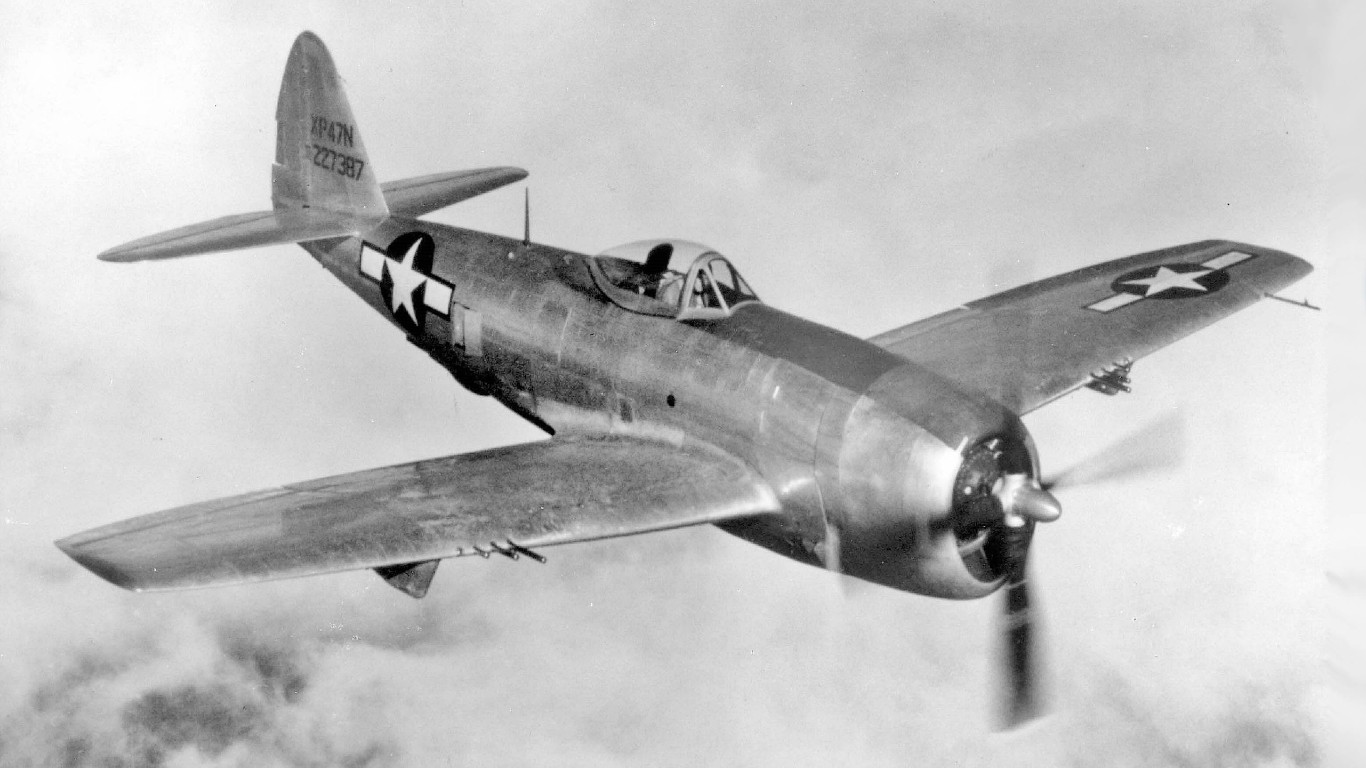
15. Republic P-47 Thunderbolt
> Number produced: 15,660
> Country of origin: United States
> Year entered service: 1942
> Notably used doing: World War II
> Crew size: 1
> Max speed: 433 mph
> Roles: Air-to-air combat fighter, ground attack (bombing, strafing, training, close-air support
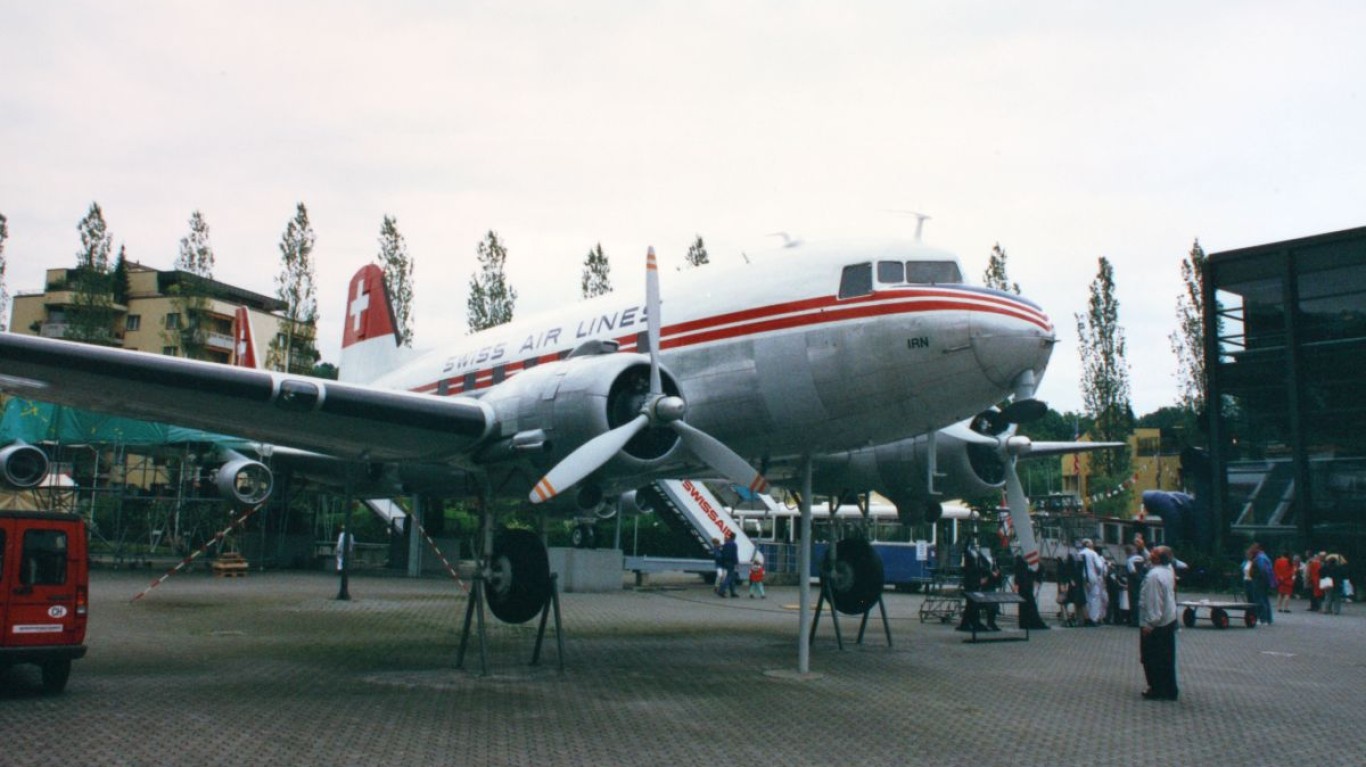
14. Douglas DC-3
> Number produced: 16,079
> Country of origin: United States
> Year entered service: 1936
> Notably used doing: World War II
> Crew size: 2 + 3
> Max speed: 237 mph
> Roles: Military transport, commercial aviation
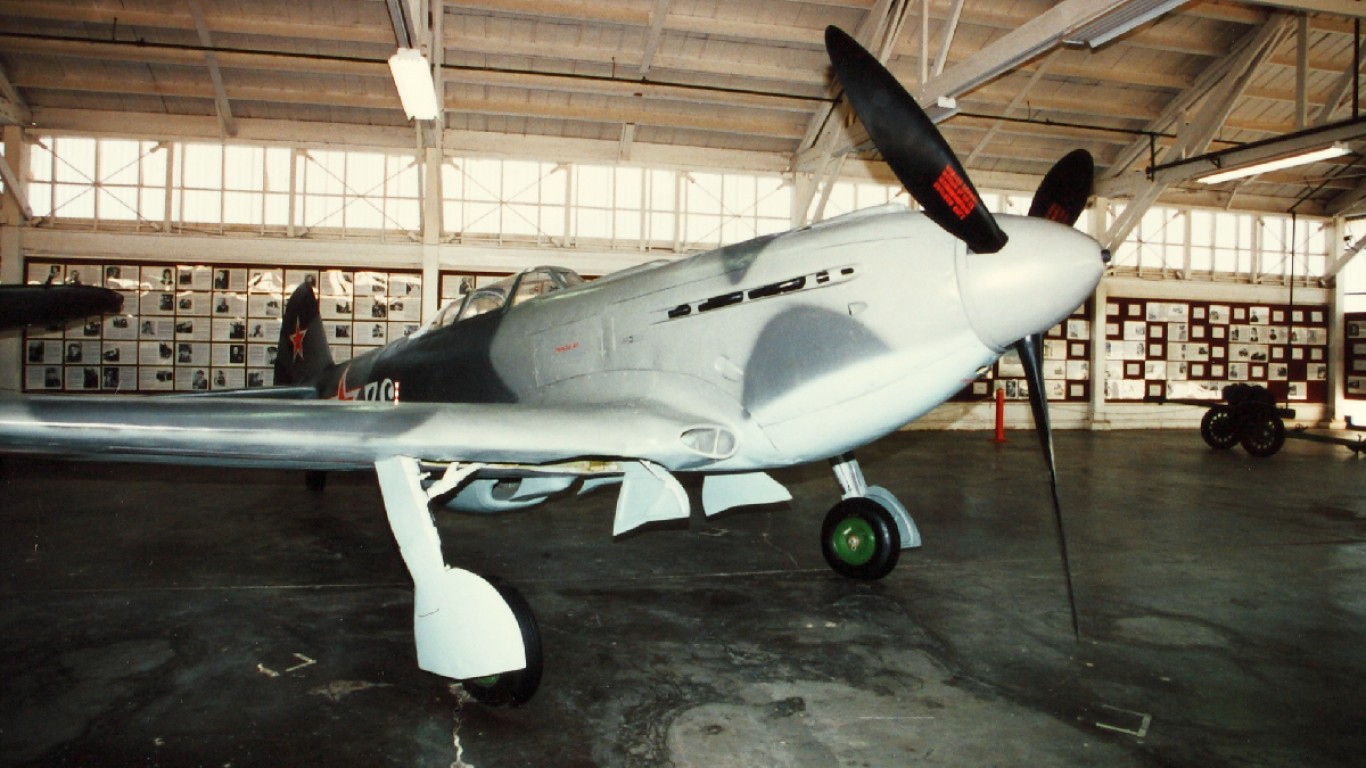
13. Yakovlev Yak-9 (Frank)
> Number produced: 16,769
> Country of origin: Soviet Union
> Year entered service: 1943
> Notably used doing: World War II
> Crew size: 1
> Max speed: 434 mph
> Roles: Air-to-air combat fighter, interception, intelligence-surveillance-reconnaissance
[in-text-ad-2]
12. Curtiss P-40 Warhawk
> Number produced: 16,800
> Country of origin: United States
> Year entered service: 1941
> Notably used doing: World War II
> Crew size: 1
> Max speed: 378 mph
> Roles: Air-to-air combat fighter, intelligence-surveillance-reconnaissance
11. Beechcraft Bonanza
> Number produced: 17,000
> Country of origin: United States
> Year entered service: 1947
> Notably used doing: Vietnam War
> Crew size: 1
> Max speed: 203 mph
> Roles: Transport, commercial aviation, VIP service, training
[in-text-ad]
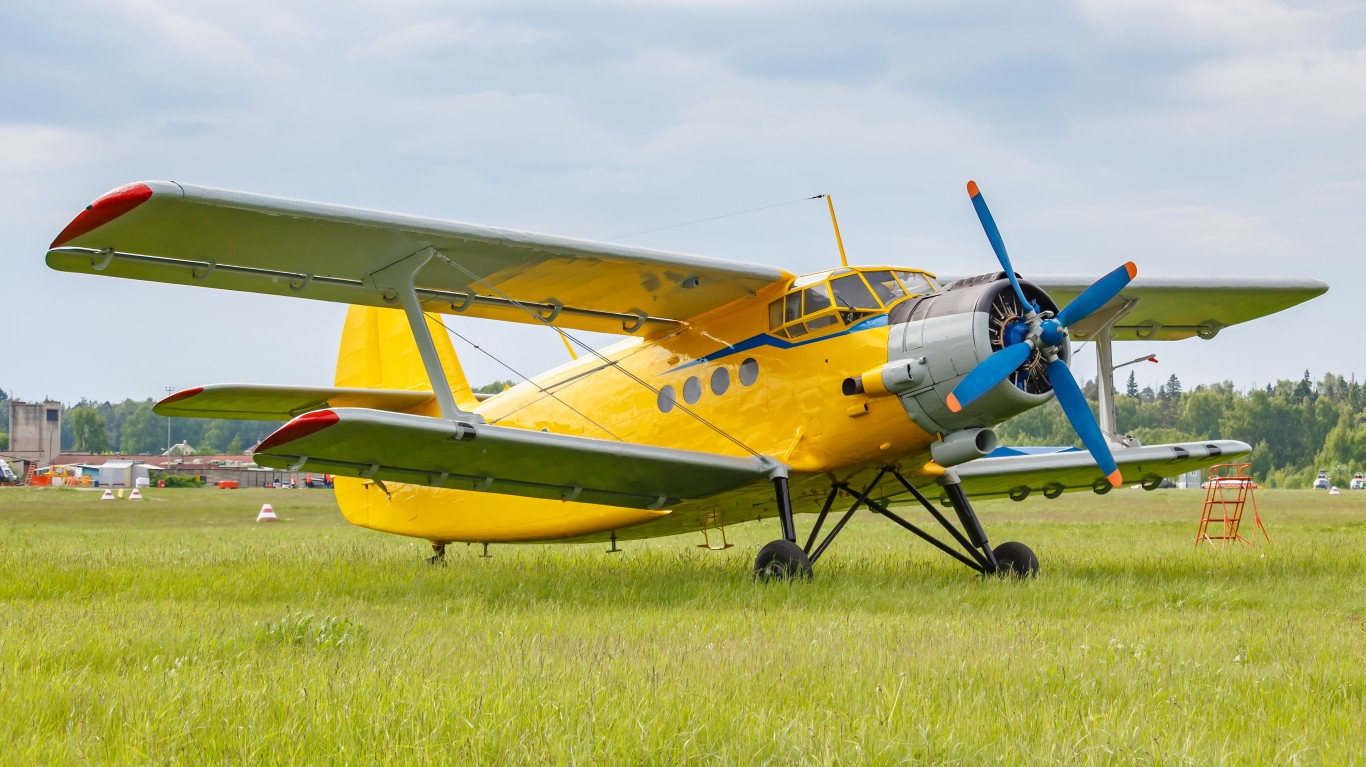
10. Antonov An-2 (Colt)
> Number produced: 18,000
> Country of origin: Soviet Union
> Year entered service: 1947
> Notably used doing: Korean War
> Crew size: 2
> Max speed: 160 mph
> Roles: Close-air support, Maritime / Navy, transport, commercial aviation, VIP service, intelligence-surveillance-reconnaissance, training
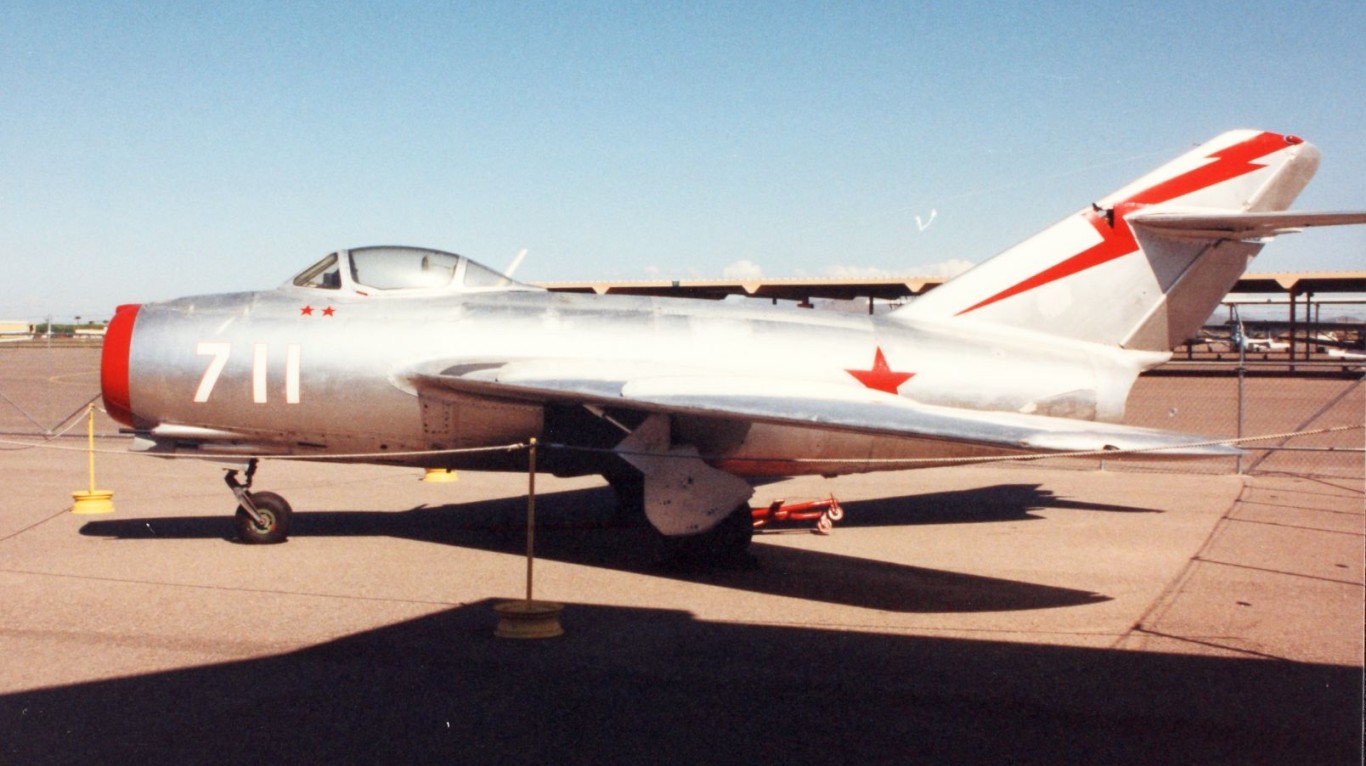
9. Mikoyan-Gurevich MiG-15 (Fagot)
> Number produced: 18,000
> Country of origin: Soviet Union
> Year entered service: 1949
> Notably used doing: Korean War
> Crew size: 1
> Max speed: 668 mph
> Roles: Air-to-air combat fighter, interception, close-air support, ground attack (bombing, strafing), training
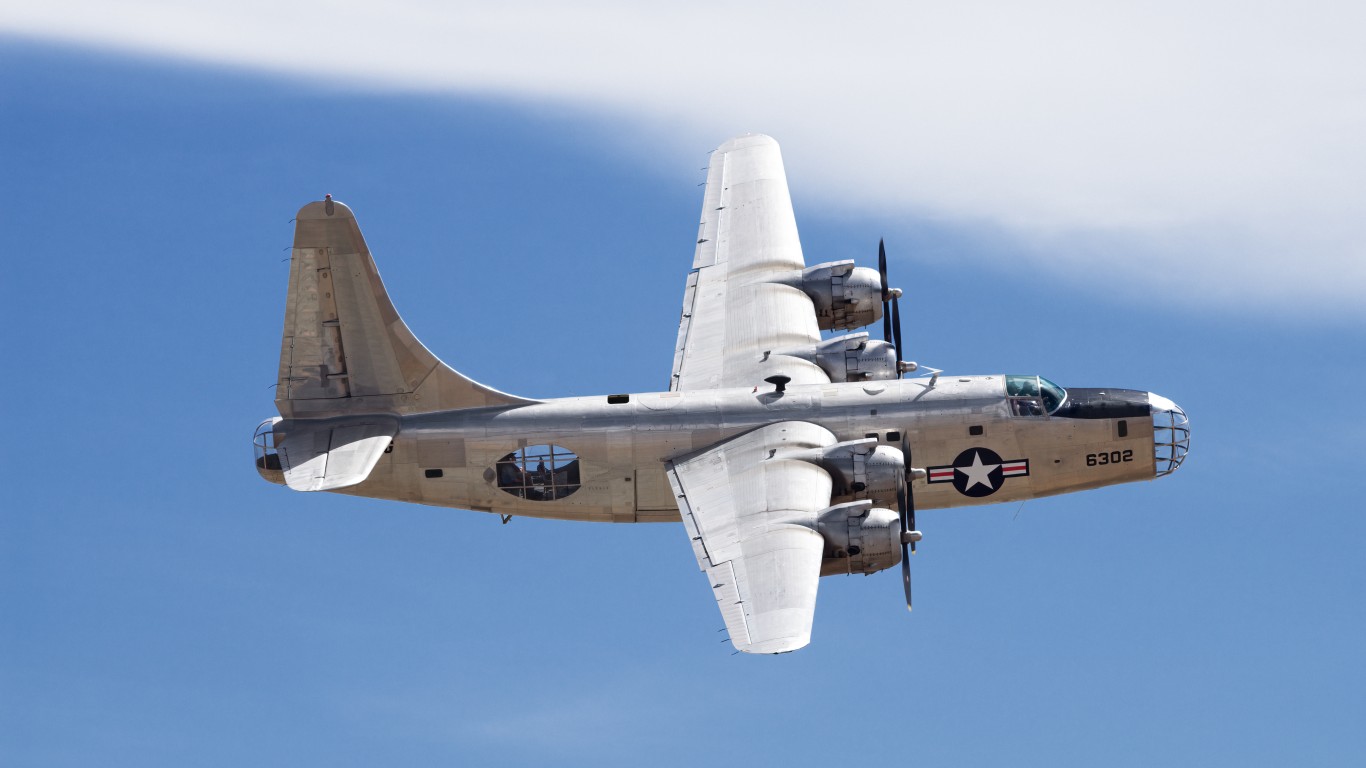
8. Consolidated B-24 Liberator
> Number produced: 18,482
> Country of origin: United States
> Year entered service: 1941
> Notably used doing: World War II
> Crew size: 7 to 10
> Max speed: 290 mph
> Roles: Ground attack (bombing, strafing), anti-submarine warfare, transport, VIP service, intelligence-surveillance-reconnaissance
[in-text-ad-2]
7. Focke-Wulf Fw 190 (Wurger)
> Number produced: 20,000
> Country of origin: Nazi Germany
> Year entered service: 1941
> Notably used doing: World War II
> Crew size: 1
> Max speed: 426 mph
> Roles: Air-to-air combat fighter, ground attack (bombing, strafing, training

6. Supermarine Spitfire
> Number produced: 20,351
> Country of origin: United Kingdom
> Year entered service: 1938
> Notably used doing: World War II
> Crew size: 1
> Max speed: 369 mph
> Roles: Air-to-air combat fighter, interception, close-air support, intelligence-surveillance-reconnaissance
[in-text-ad]
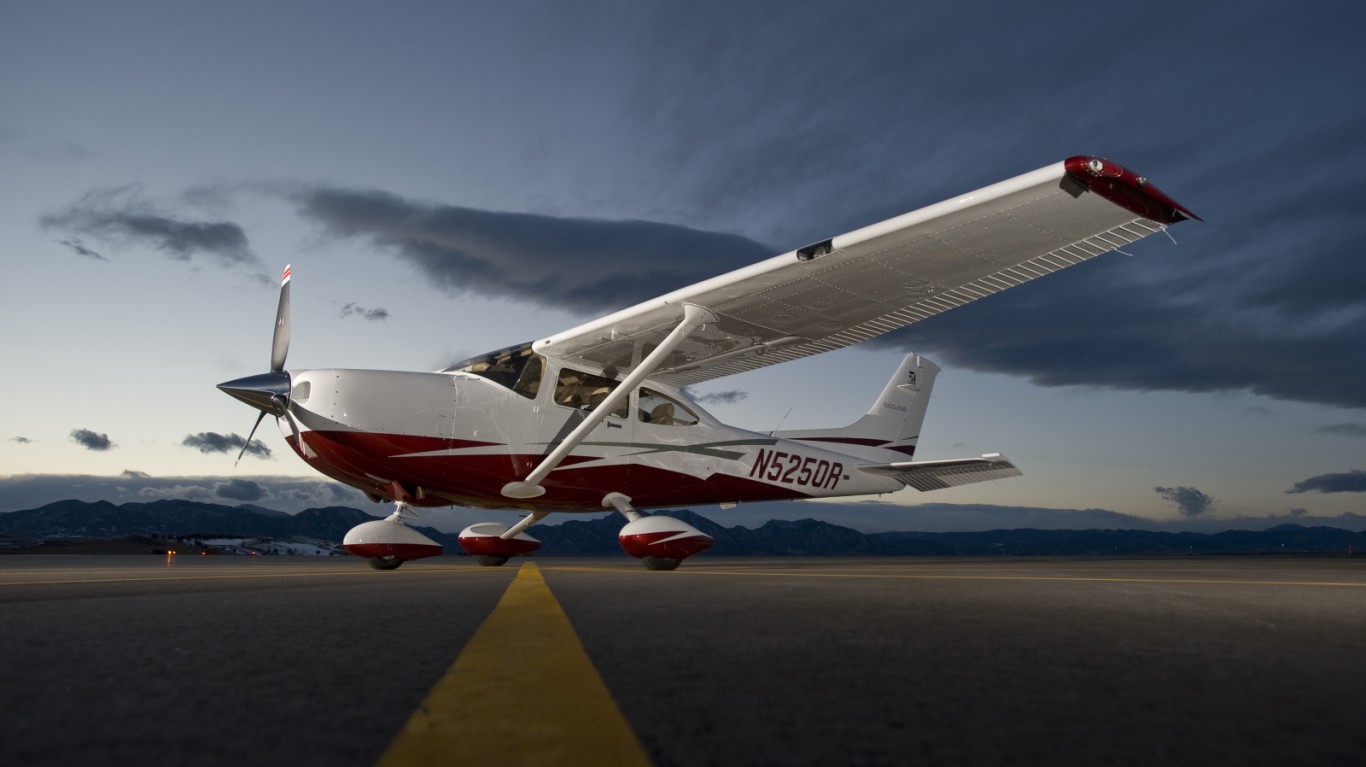
5. Cessna 182 (Skylane)
> Number produced: 23,240
> Country of origin: United States
> Year entered service: 1956
> Notably used doing: Vietnam War
> Crew size: 1
> Max speed: 174 mph
> Roles: Close-air support, MEDEVAC, search & rescue, commercial aviation, training
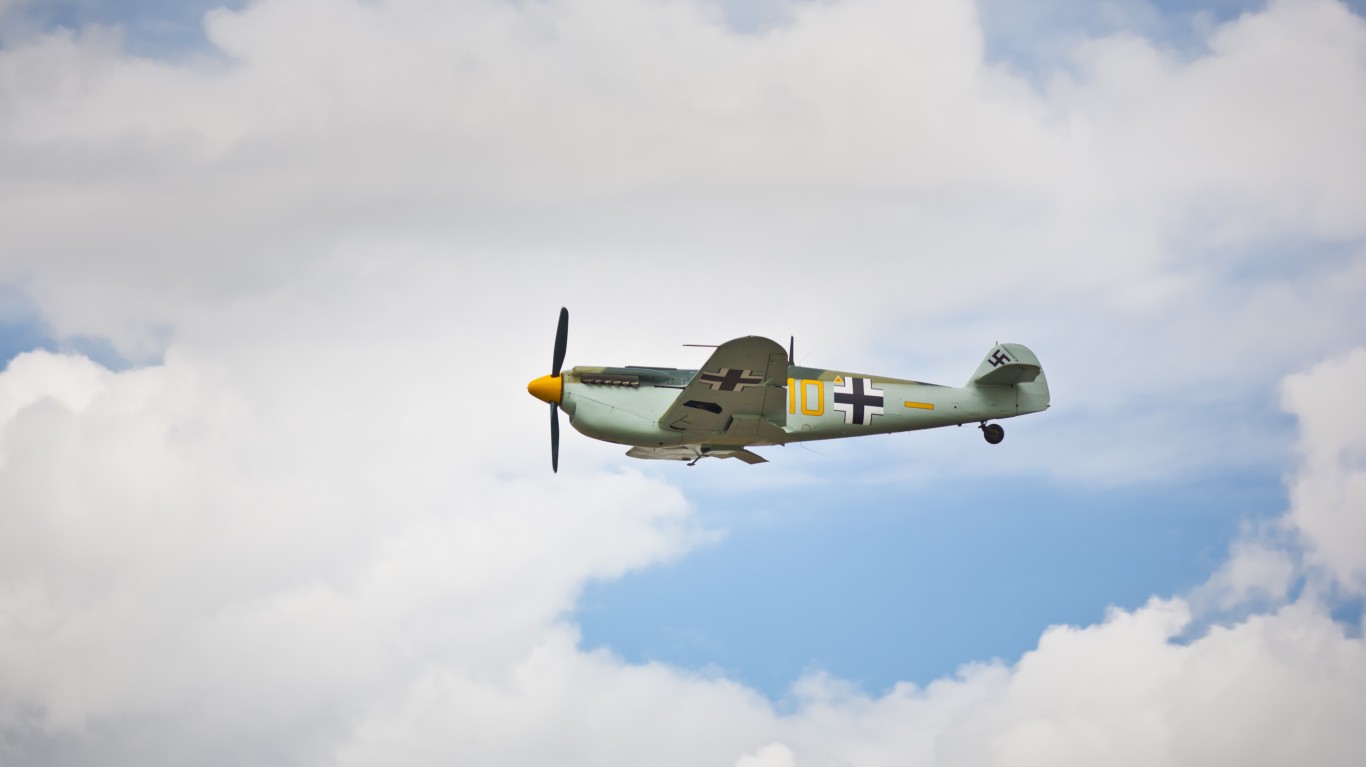
4. Messerschmitt Bf 109
> Number produced: 35,500
> Country of origin: Nazi Germany
> Year entered service: 1937
> Notably used doing: World War II
> Crew size: 1
> Max speed: 359 mph
> Roles: Air-to-air combat fighter, interception, close-air support, intelligence-surveillance-reconnaissance
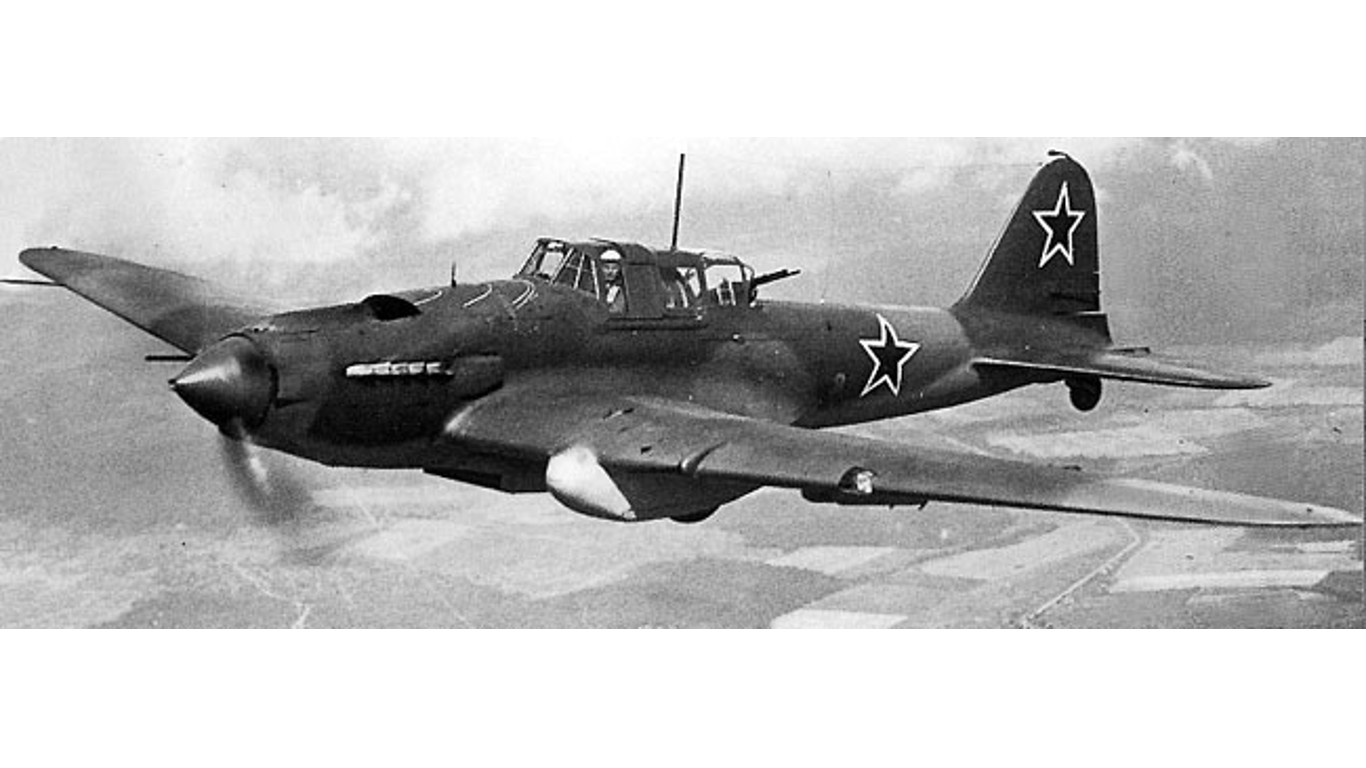
3. Ilyushin IL-2 Shturmovik (Bark)
> Number produced: 36,183
> Country of origin: Soviet Union
> Year entered service: 1941
> Notably used doing: World War II
> Crew size: 2
> Max speed: 258 mph
> Roles: Ground attack (bombing, strafing), close-air support
[in-text-ad-2]
2. Polikarpov Po-2 (Mule)
> Number produced: 40,200
> Country of origin: Soviet Union
> Year entered service: 1929
> Notably used doing: World War II
> Crew size: 2
> Max speed: 94 mph
> Roles: Ground attack (bombing, strafing), close-air support, MEDEVAC, search & rescue, Maritime / Navy, commercial aviation, VIP service, intelligence-surveillance-reconnaissance, training
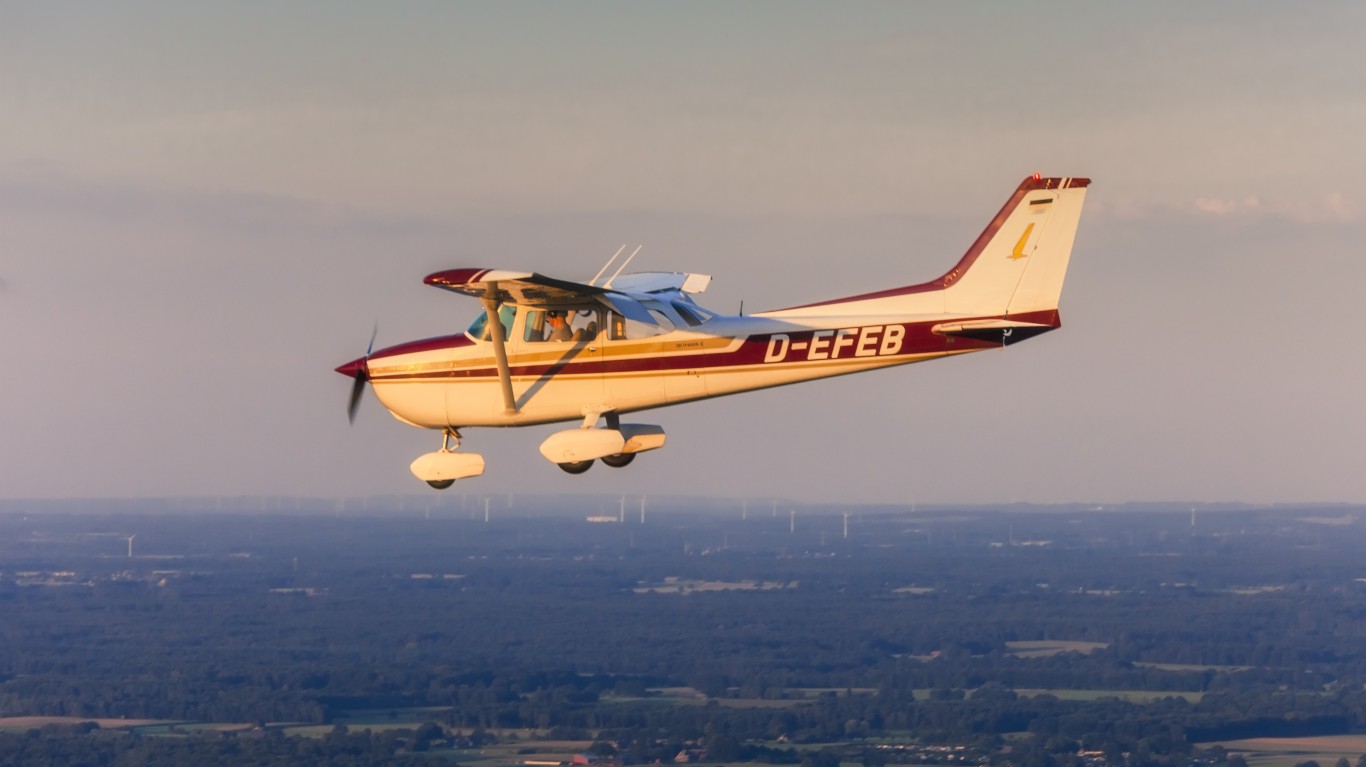
1. Cessna 172 (Skyhawk)
> Number produced: 44,000
> Country of origin: United States
> Year entered service: 1956
> Notably used doing: Vietnam War
> Crew size: 1
> Max speed: 186 mph
> Roles: MEDEVAC, search & rescue, Maritime / Navy, transport, commercial aviation, VIP service, intelligence-surveillance-reconnaissance, training
Credit Card Companies Are Doing Something Nuts
Credit card companies are at war. The biggest issuers are handing out free rewards and benefits to win the best customers.
It’s possible to find cards paying unlimited 1.5%, 2%, and even more today. That’s free money for qualified borrowers, and the type of thing that would be crazy to pass up. Those rewards can add up to thousands of dollars every year in free money, and include other benefits as well.
We’ve assembled some of the best credit cards for users today. Don’t miss these offers because they won’t be this good forever.
Flywheel Publishing has partnered with CardRatings for our coverage of credit card products. Flywheel Publishing and CardRatings may receive a commission from card issuers.
Thank you for reading! Have some feedback for us?
Contact the 24/7 Wall St. editorial team.
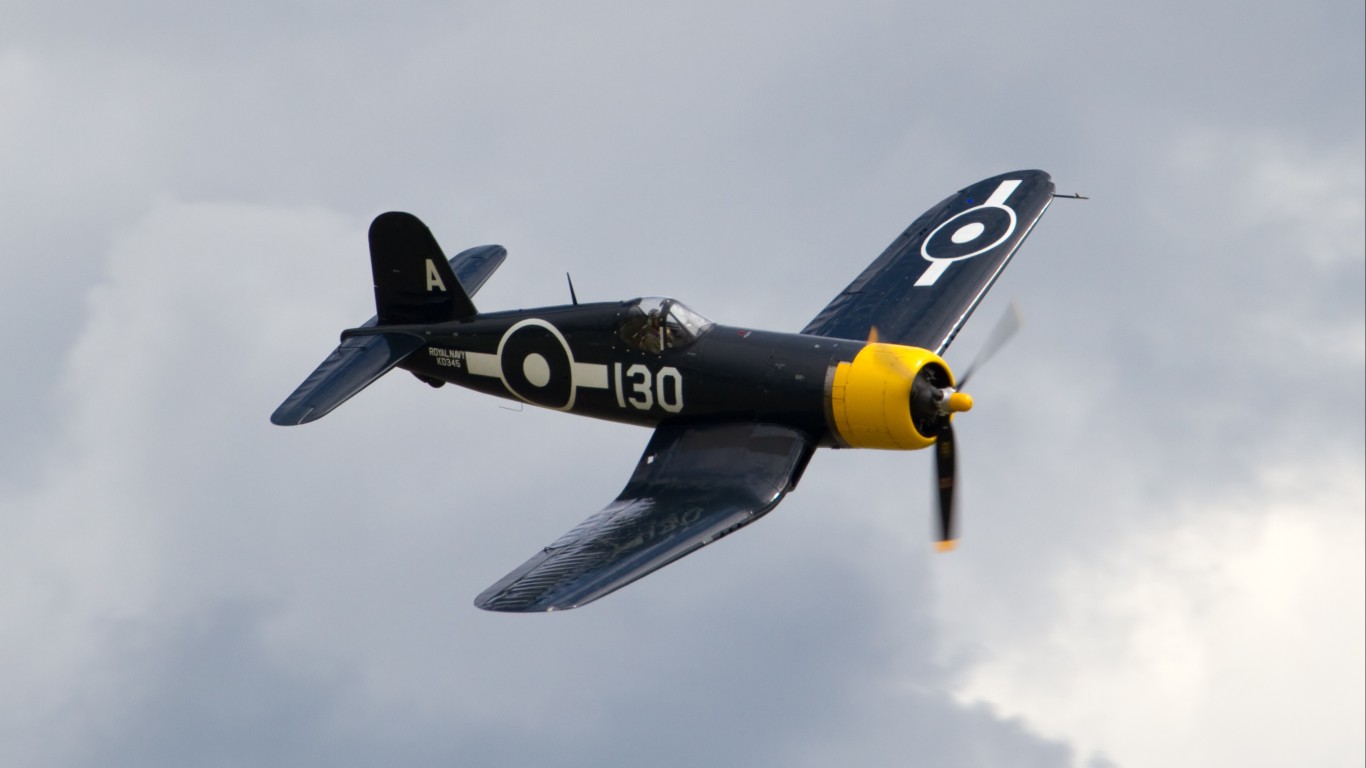
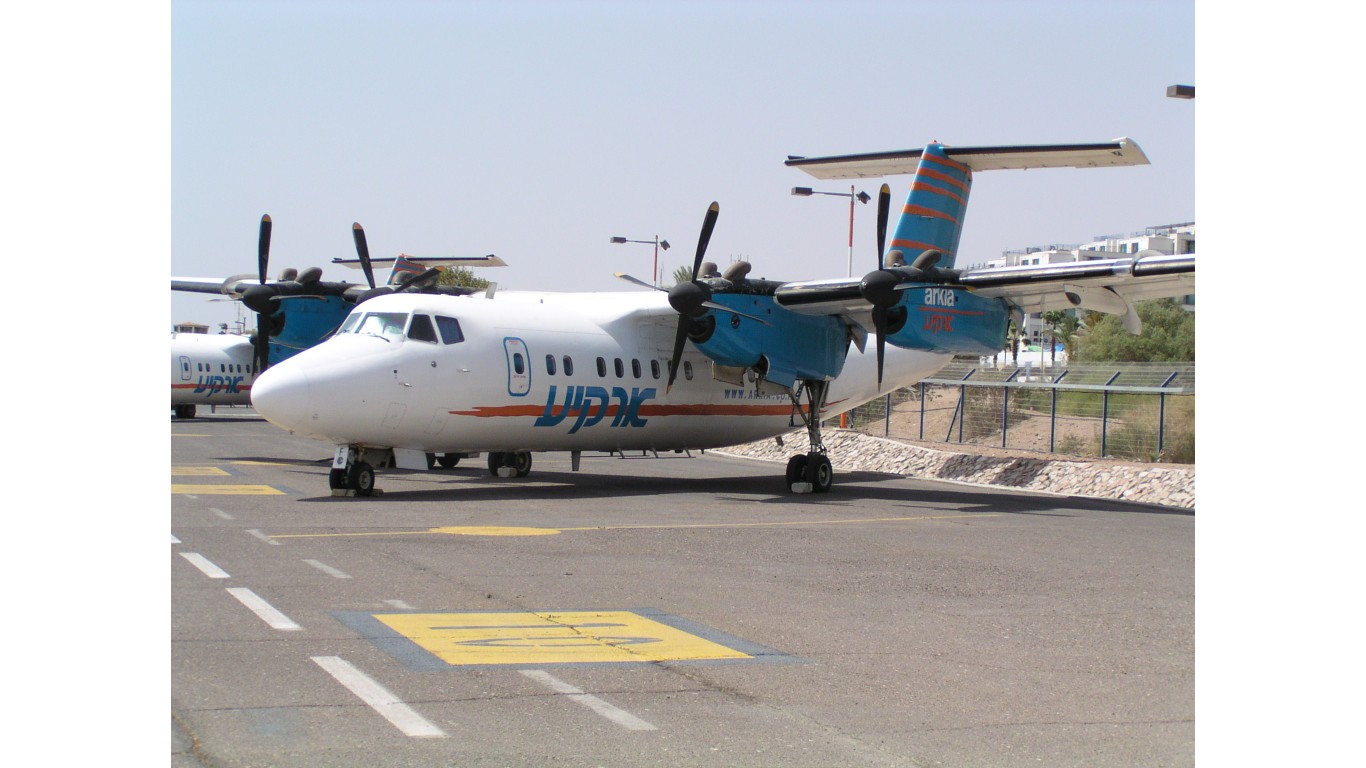 24/7 Wall St.
24/7 Wall St.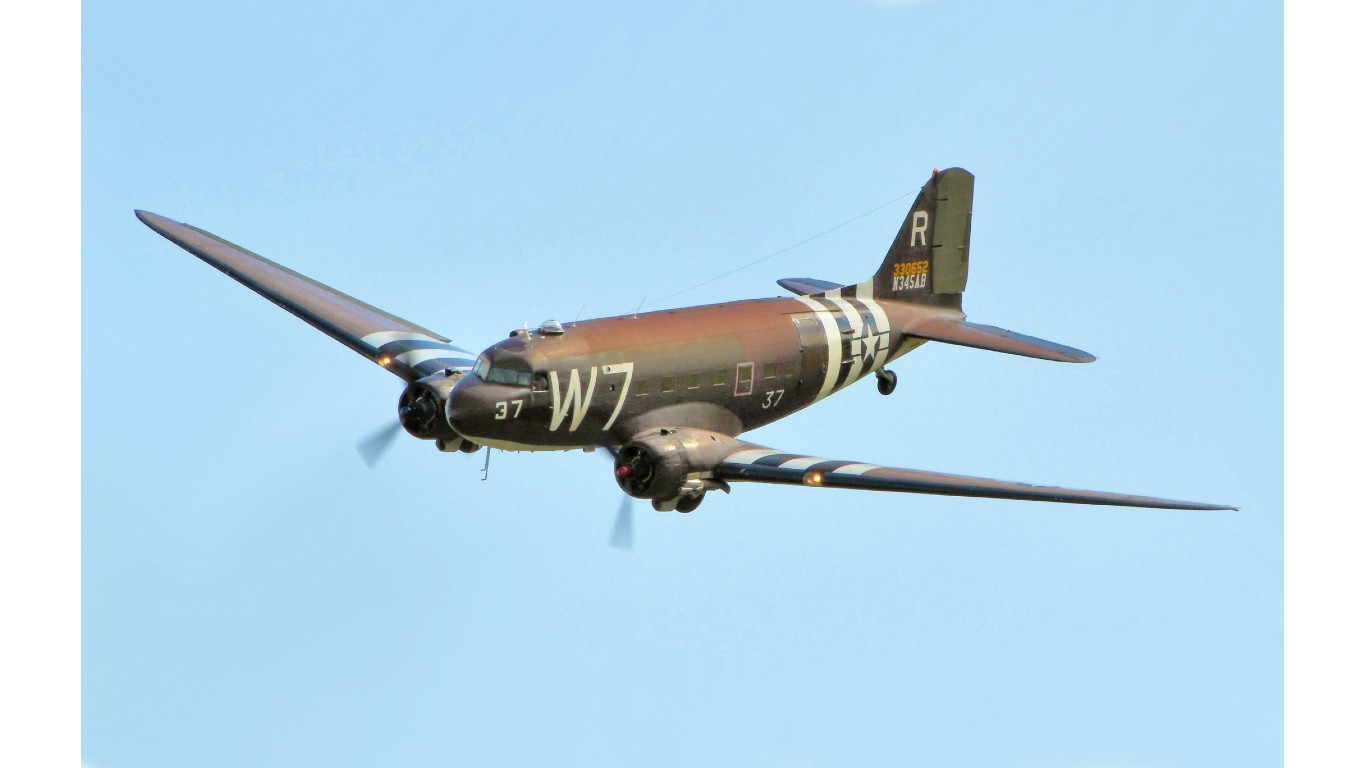
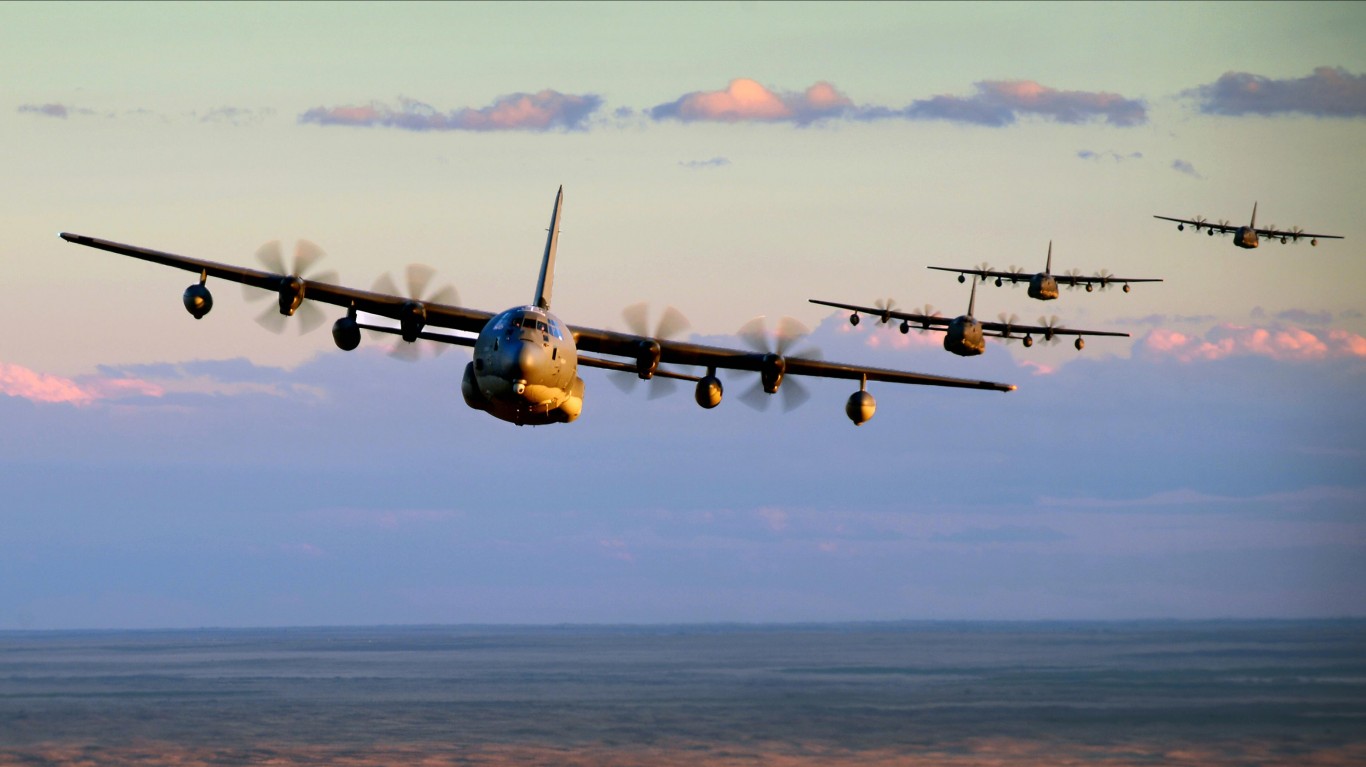 24/7 Wall St.
24/7 Wall St.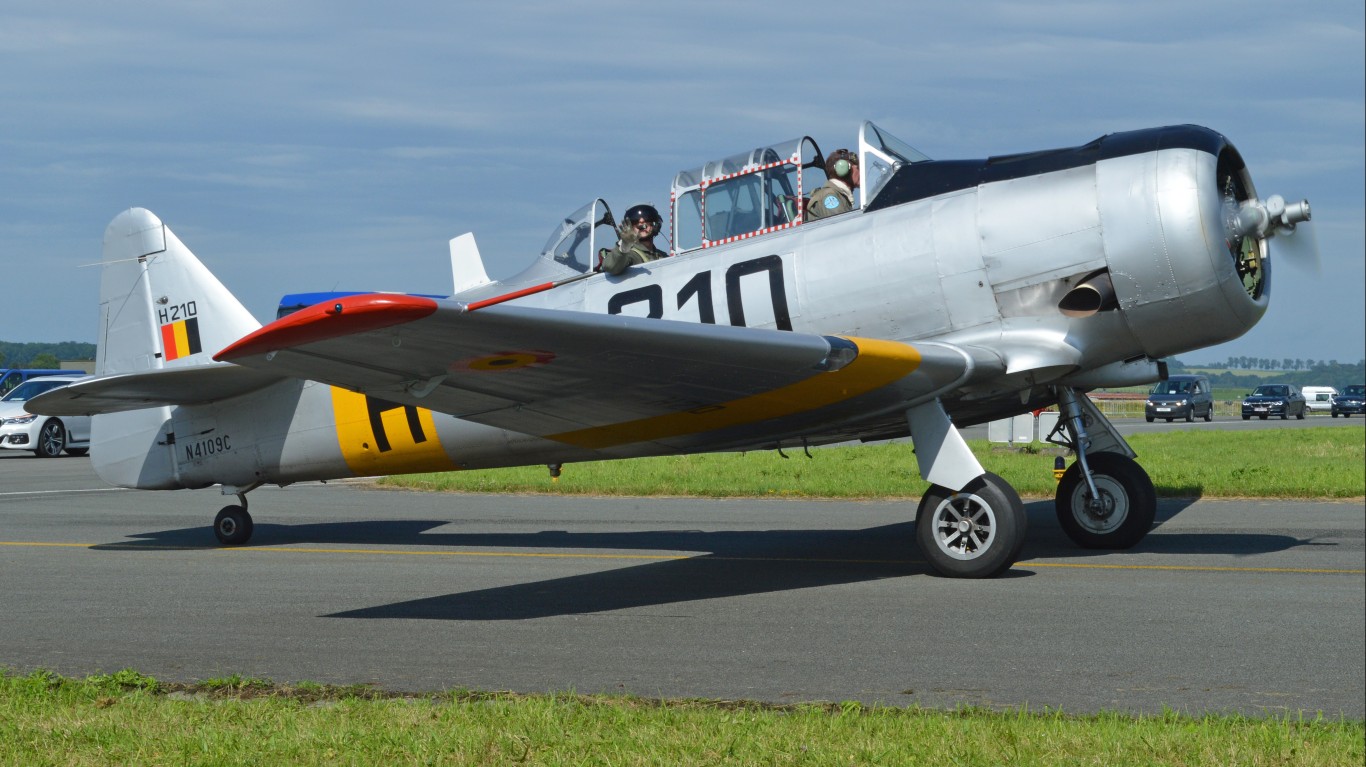
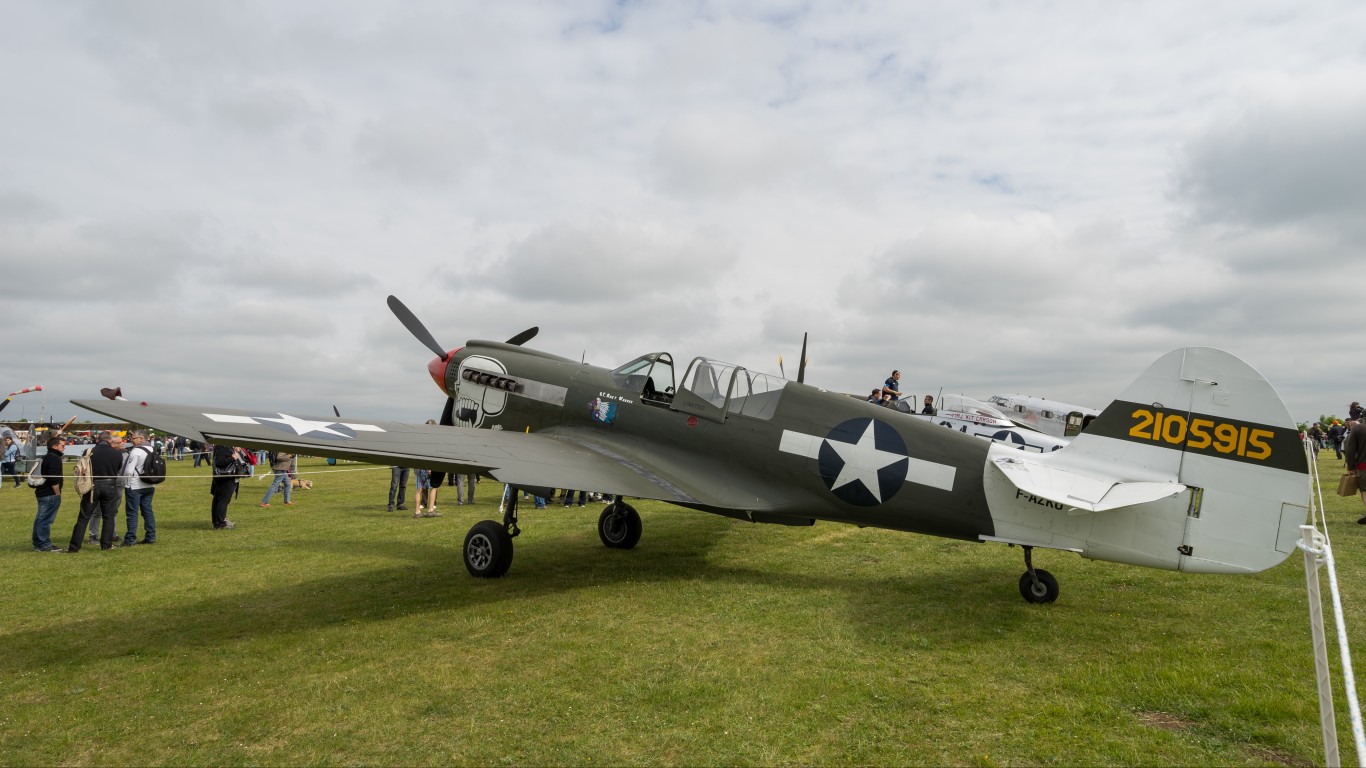
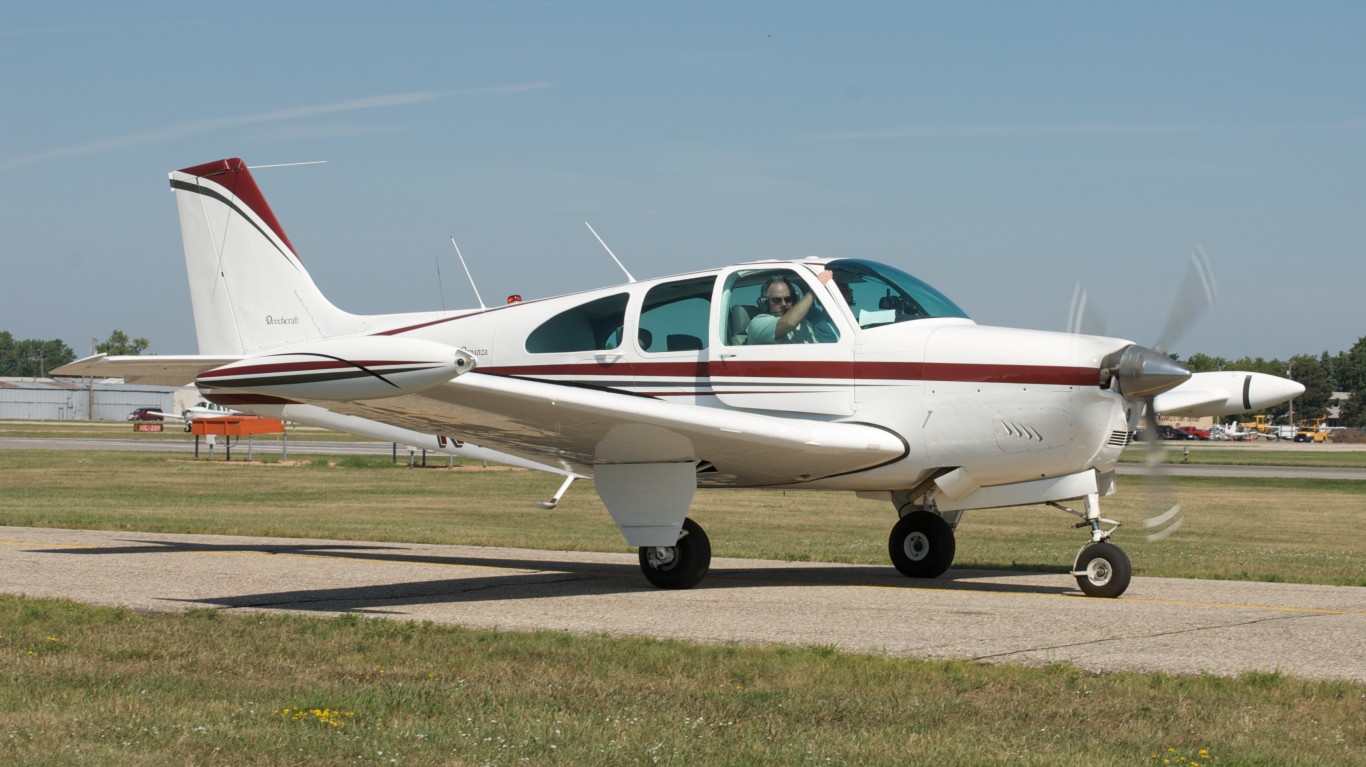
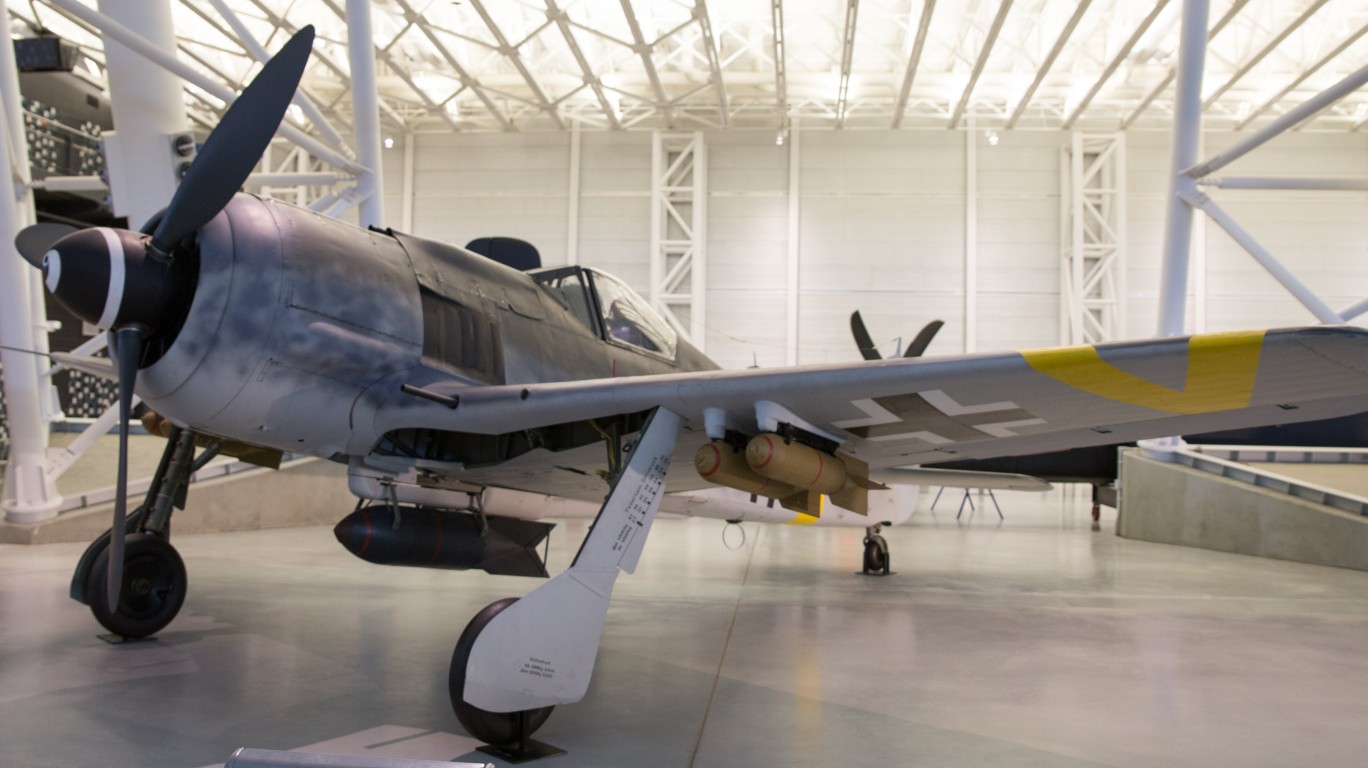
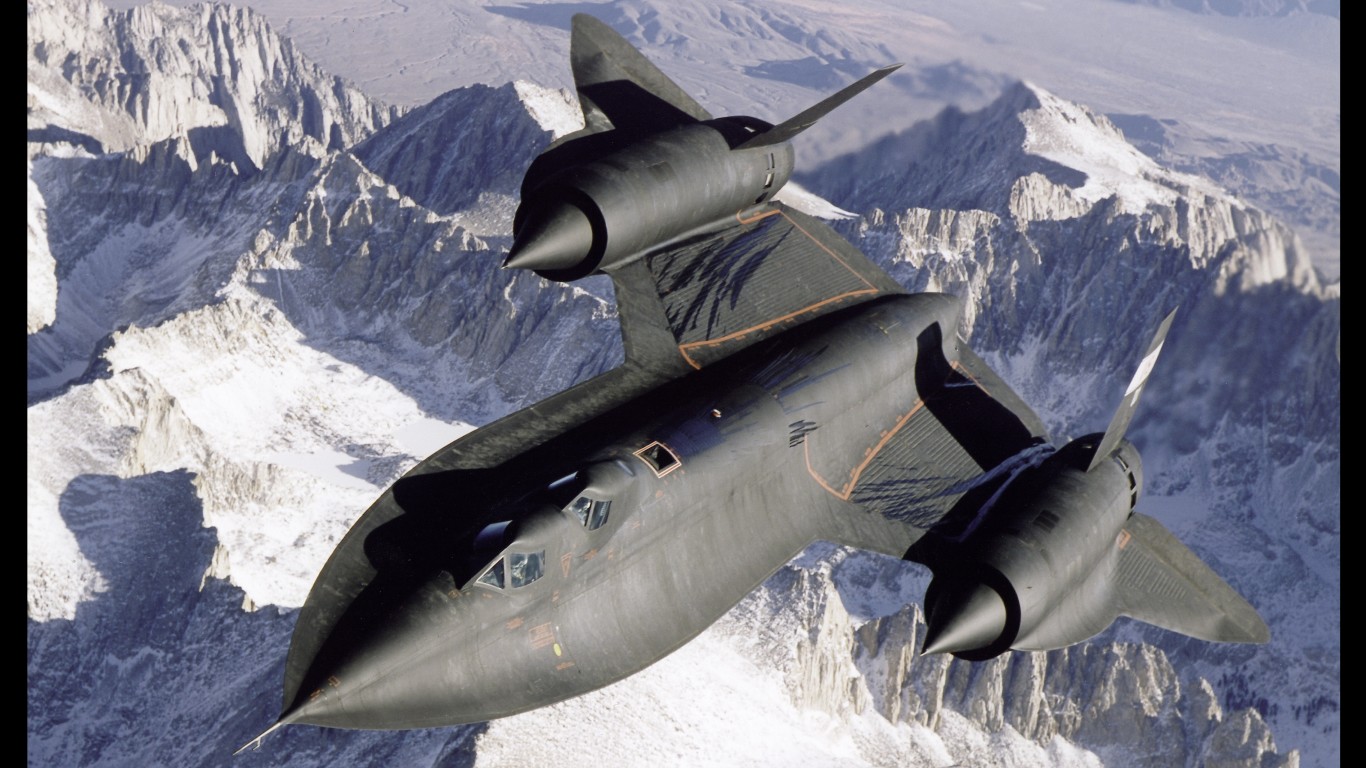 24/7 Wall St.
24/7 Wall St.